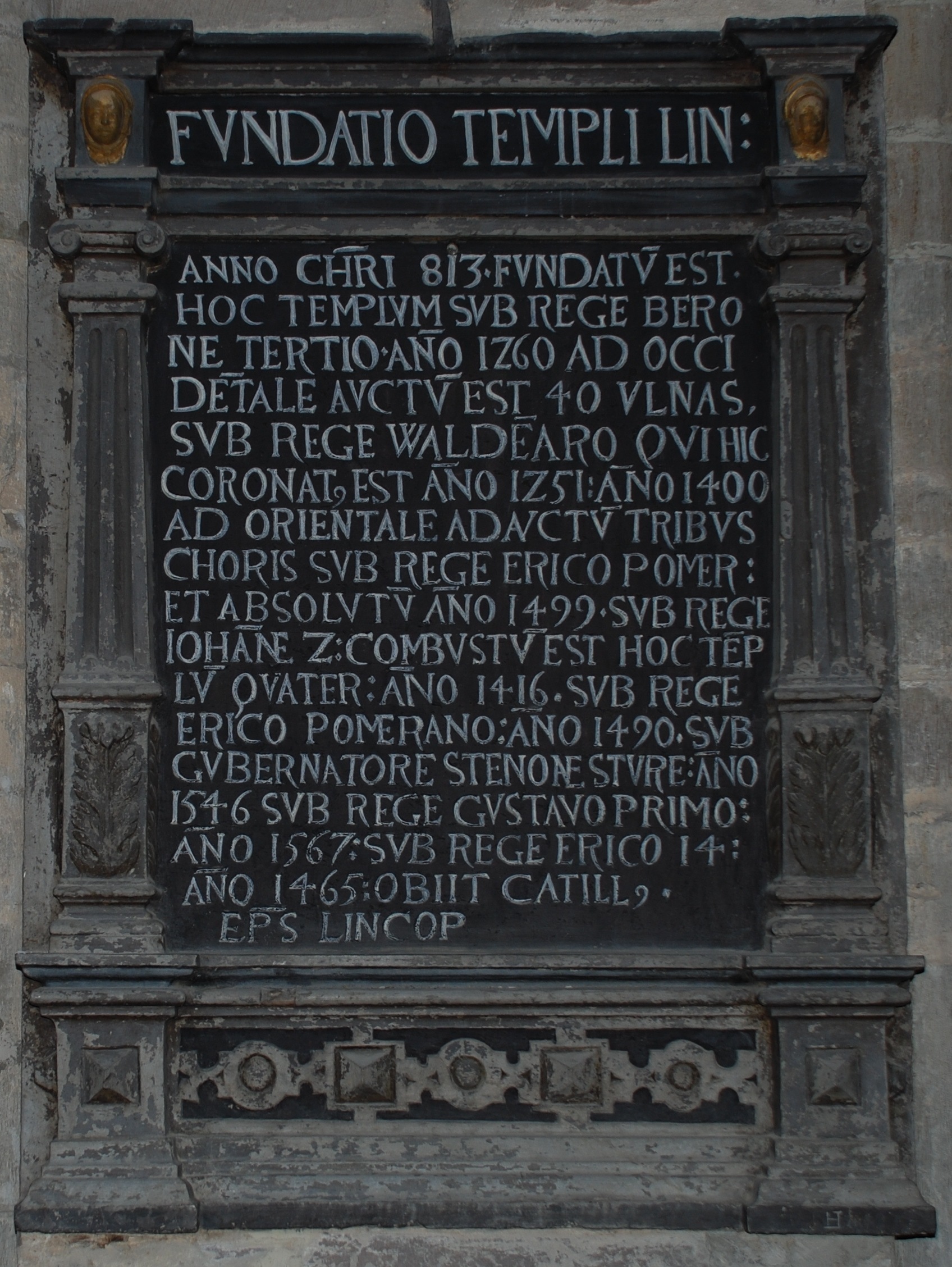Björn Eriksson on:
[Wikipedia]
[Google]
[Amazon]
 Björn (traditionally ruled 882–932) according to the '' Hervarar saga'' and ''
Björn (traditionally ruled 882–932) according to the '' Hervarar saga'' and ''
 Björn (traditionally ruled 882–932) according to the '' Hervarar saga'' and ''
Björn (traditionally ruled 882–932) according to the '' Hervarar saga'' and ''Harald Fairhair
Harald Fairhair no, Harald hårfagreModern Icelandic: ( – ) was a Norwegian king. According to traditions current in Norway and Iceland in the eleventh and twelfth centuries, he reigned from 872 to 930 and was the first King of N ...
's saga'' was the father of Olof (II) Björnsson and Eric the Victorious
Eric the Victorious (Old Norse: ''Eiríkr inn sigrsæli'', Modern Swedish: ''Erik Segersäll''; c. 945 – c. 995) was a Swedish monarch as of around 970. Although there were earlier Swedish kings, he is the first Swedish king in a consecutive reg ...
, also a grandfather of Styrbjörn the Strong
Styrbjörn the Strong ( non, Styrbjǫrn Sterki ; died about 985) according to late Norse sagas was a son of the Swedish king Olof, and a nephew of Olof's co-ruler and successor Eric the Victorious, who defeated and killed Styrbjörn at the Battl ...
. According to the two sagas, he was the son of an Erik who fought Harald Fairhair
Harald Fairhair no, Harald hårfagreModern Icelandic: ( – ) was a Norwegian king. According to traditions current in Norway and Iceland in the eleventh and twelfth centuries, he reigned from 872 to 930 and was the first King of N ...
and who succeeded the brothers Björn at Hauge
Bjorn (English, Dutch), Björn (Swedish, Icelandic, Dutch, and German), Bjørn (Danish, Faroese and Norwegian), Beorn (Old English) or, rarely, Bjôrn, Biorn, or Latinized Biornus, Brum (Portuguese), is a Scandinavian male given name, or less oft ...
and Anund Uppsale:
:King Önund had a son called Eric
The given name Eric, Erich, Erikk, Erik, Erick, or Eirik is derived from the Old Norse name ''Eiríkr'' (or ''Eríkr'' in Old East Norse due to monophthongization).
The first element, ''ei-'' may be derived from the older Proto-Norse ''* a ...
, and he succeeded to the throne at Upsala after his father. He was a rich King. In his days Harold the Fair-haired made himself King of Norway. He was the first to unite the whole of that country under his sway. Eric at Upsala had a son called Björn, who came to the throne after his father and ruled for a long time. The sons of Björn, Eric the Victorious, and Olaf succeeded to the kingdom after their father. Olaf was the father of Styrbjörn the Strong.(''Hervarar saga'')
The latter saga relates that he ruled for 50 years:
:There were disturbances also up in Gautland as long as King Eirik Eymundson lived; but he died when King Harald Harfager had been ten years king of all Norway. After Eirik, his son Bjorn was king of Svithjod for fifty years. He was father of Eirik the Victorious, and of Olaf the father of Styrbjorn. (''Harald Fairhair's saga'')
In '' Olaf the Holy's saga'', Snorri Sturluson
Snorri Sturluson ( ; ; 1179 – 22 September 1241) was an Icelandic historian, poet, and politician. He was elected twice as lawspeaker of the Icelandic parliament, the Althing. He is commonly thought to have authored or compiled portions of th ...
quotes Thorgny Lawspeaker on king Björn:
:My father, again, was a long time with King Bjorn, and was well acquainted with his ways and manners. In Bjorn's lifetime his kingdom stood in great power, and no kind of want was felt, and he was gay and sociable with his friends. (''Saga of Olaf Haraldsson'')
When Björn died, Olof and Eric were elected to be co-rulers of Sweden. However, Eric would disinherit his nephew Styrbjörn.
Adam of Bremen
Adam of Bremen ( la, Adamus Bremensis; german: Adam von Bremen) (before 1050 – 12 October 1081/1085) was a German medieval chronicler. He lived and worked in the second half of the eleventh century. Adam is most famous for his chronicle '' Ges ...
, however, only gives Emund Eriksson as the predecessor of Eric the Victorious
Eric the Victorious (Old Norse: ''Eiríkr inn sigrsæli'', Modern Swedish: ''Erik Segersäll''; c. 945 – c. 995) was a Swedish monarch as of around 970. Although there were earlier Swedish kings, he is the first Swedish king in a consecutive reg ...
, around 970. His account is generally considered more reliable than the Icelandic sagas, and as such Björn Eriksson may be an entirely fictional figure.Adam av Bremen (1984), ''Historien om Hamburgstiftet och dess biskopar''. Stockholm: Proprius, p. 81 (Book II, Chapter 25.
See also
* Early Swedish History *House of Munsö
The House of Munsö (), also called the House of Björn Ironside (Swedish: ), the House of Uppsala (Swedish: ) or simply the Old dynasty (Swedish: ), is the earliest reliably attested royal dynasty of Sweden, ruling during the Viking Age. None of ...
*List of legendary kings of Sweden
The legendary kings of Sweden () according to legends were rulers of Sweden and the Swedes who preceded Eric the Victorious and Olof Skötkonung, the earliest reliably attested Swedish kings. Though the stories of some of the kings may be embel ...
References
{{DEFAULTSORT:Bjorn (Iii) Eriksson Semi-legendary kings of Sweden House of Munsö 10th-century Swedish monarchs